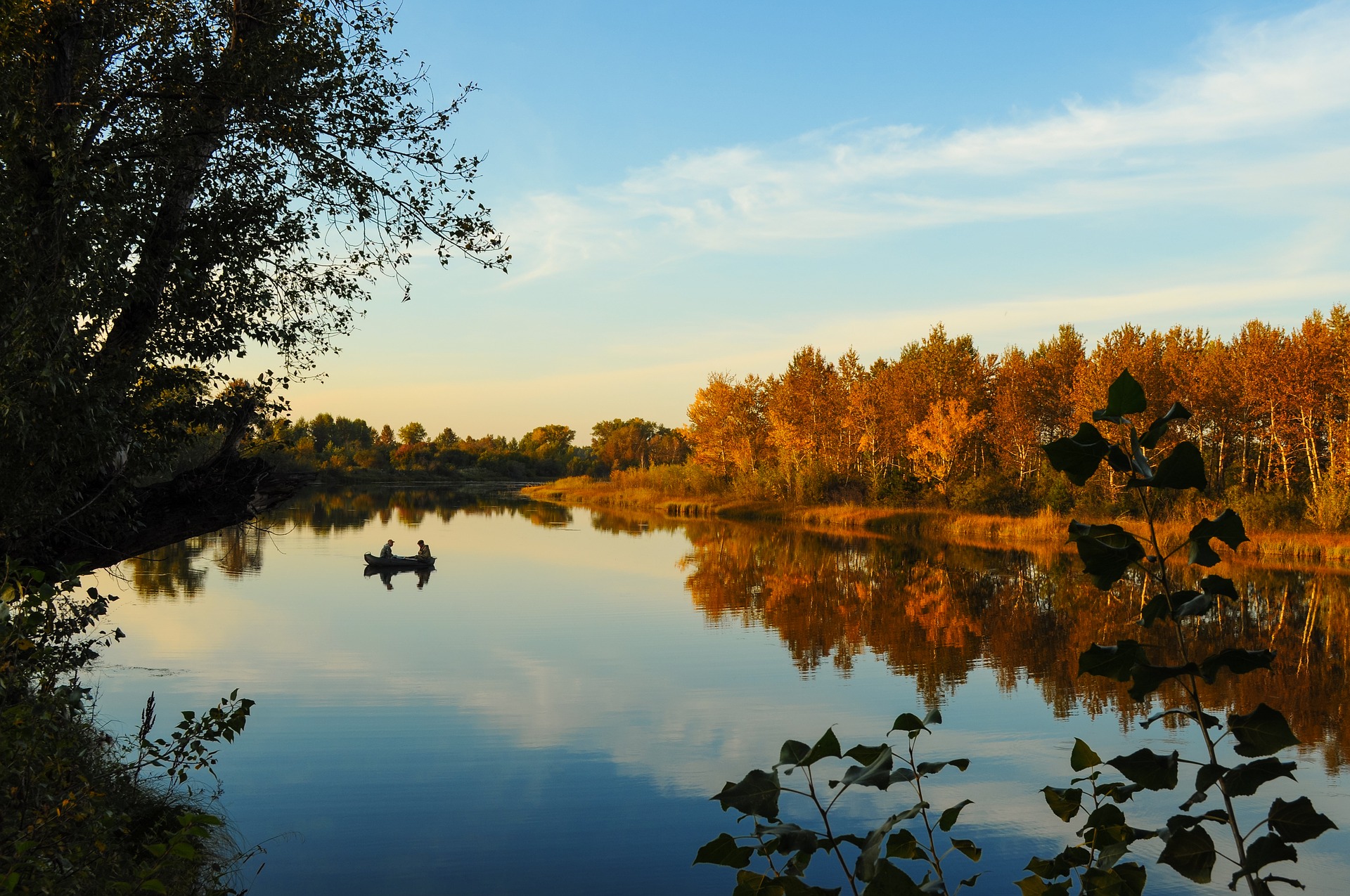Things to remember while bass fishing during the fall

Fall doesn’t necessarily have to be all cold and gloomy, especially if you have a hobby such as fishing, and particularly bass fishing. North America celebrates the start of fall like no other region in the world, where the season has become synonymous with falling leaves, soccer games, harvest moon, fog and frosts and, of course, pumpkins.
However, fishing has a very distinct place in the activities associated with the fall for North Americans. This seems a strange idea perhaps since on the surface it sounds a pretty ridiculous thing considering the fact that most bodies of water are pretty much deserted at this time of year. So, where to fish then? Well, start by looking for the warmer waters and moderate temperatures and you can end up with enough bass for your efforts during the autumn months.
The aim should be to start hitting warm waters sometime in the late summer and try to move to deep waters as the autumn comes on, especially if you are planning to fish in the reservoirs. In the shallow water, you can find enough small bass, as the presence of vegetation that provides perfect cover attracts these fish. But if you are after fairly large sizes, you must take the next step and go for the deep-water ambush spots such as humps, creek channels, and drop-offs.
When baitfish go to school

Big reservoirs, especially during this time of year, see a radical shift in the normal feeding behavior of bass. The reservoirs will be full of all kinds of shad, and this high activity of shad eventually attracts bass. In such situations, bass are more likely to engage in schooling, a behavior that bass don’t normally exhibit, but are encouraged to do so by the presence of large quantities of baitfish. This activity is particularly interesting when you consider the fact that bass are normally cover- and object-oriented. But shad are quite the opposite to that and the bass will follow their lead into the open waters, away from their normal habitat. Bass wait along the edges of vegetation and other forms of cover, ready for the right opportunity, and as soon as a pod of hungry shad arrives to feed, the attack comes out of nowhere.
Be very observant and choose your lures carefully and work them around the covers for maximum yield, and remember the attack happens suddenly so always be prepared. Some enthusiasts rely heavily on modern technology and use sonar to locate an active pod of shad since bass will be around there somewhere waiting for the right moment. However, this method, though highly technological, doesn’t always prove to be so productive, since shad are really fast and it often becomes near impossible to keep track of their movement.
Into the shallows

If you cannot locate adequate vegetation around the banks, or there is less shad activity in the shallows, look for other natural structures such as broken logs, fallen trees, etc. and be observant and patient: the pod will eventually arrive. Try using surface lures if there isn’t adequate light, otherwise, go for your spinnerbaits, jig, or Texas-rigged soft worm. Keep in mind that bass will most probably choose their time very carefully and will wait in the corners patiently for a pod of shad to arrive. In the meantime, work on your lures. Bass are naturally an ambush hunter and suddenly moves in on prey, so you would not have much time to react if your lures aren’t in the right place well before that short period of chaos.
In some territories, where natural lakes and ponds are in abundance, there is hardly any shad activity, hence there are no bass following them. Bass will show their aggressive nature on a pod of shinners, but in this case, the attack will be on the spur of the moment, since bass tend not to school when shinners are involved, so there won’t be any aggressive following, just simple attacks, and a quick feed.
Use the Wind intelligently

When fishing for bass in the fall, be prepared for the times when the wind will challenge your understanding of the spot you are fishing in. Wind occurs due to changing weather patterns, and often, these winds are strong enough to whip up the water surface. This is good in terms of super-oxygenating the wind-blown area, especially when it takes place on larger lakes. However, in relatively smaller bodies of water, these winds help stack plankton, which attracts scores of baitfish and the opportunist bass which follow the bait. So, despite the fact that fall winds create a sense of unevenness and can cause a lot of trouble in terms of water stability, keep an eye out for the baitfish arriving and don’t miss your opportunity: the wind will eventually go, and bass will disappear too, so make most of it.
If you have any comments then please drop us a message on our Outdoor Revival Facebook page
If you have a good story to tell or blog let us know about it on our FB page, we’re also happy for article or review submissions, we’d love to hear from you.
We live in a beautiful world, get out there and enjoy it. Outdoor Revival – Reconnecting us all with the Outdoors.
